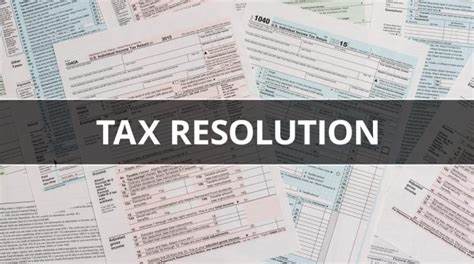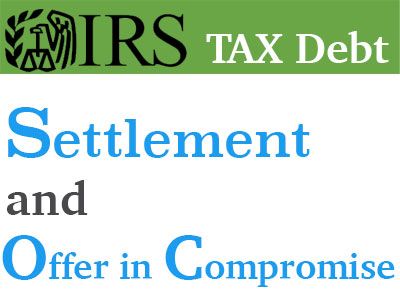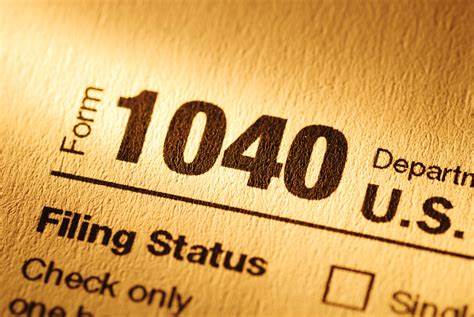
by Paulette Marshall | Mar 11, 2024 | Tax Preparation, Tax Resolution
Taxes can be complex and overwhelming. When back tax debt comes into the picture, things can get a bit more complicated and stressful. If you fail to pay your back taxes, two terms often surface: “lien” and “levy.”
These terms have specific meanings and consequences in the realm of taxation, and understanding the differences is essential for anyone seeking tax relief.
Let’s demystify these terms and explore their implications.
Note: If you’re facing threatening letters from the IRS or have a “Notice of Federal Tax Lien”, call us immediately to find what tax relief options you may qualify for 937-268-2737.
What Is a Tax Lien?
A tax lien is a legal claim against a taxpayer’s property or assets, serving as collateral for unpaid tax debt. It is not an immediate seizure of assets but rather a legal encumbrance that alerts creditors and potential buyers that the taxpayer owes the government money. Let’s take a closer look at tax liens and what they mean.
Filing a Tax Lien:
When a taxpayer has unpaid tax debt, the IRS or state taxing authority may file a Notice of Federal Tax Lien or equivalent state document. This notice is recorded in public records, making the tax debt a matter of public record.
Impact on Credit Score:
A tax lien can have a severe impact on the taxpayer’s credit score. It can make it challenging to secure loans or credit and can result in higher interest rates on existing credit.
Asset Encumbrance:
While a tax lien does not immediately result in the seizure of assets, it encumbers the taxpayer’s property and assets.
This means that if the taxpayer tries to sell property or assets with a tax lien, the IRS or state will typically have a claim on the proceeds.
Priority Status:
Tax liens often take precedence over other creditors, including 2nd mortgage holders and other creditors. This means that the government’s claim is superior, and they have a first right to the taxpayer’s assets.
Lien Release:
A lien can be released once the tax debt is fully paid or when the taxpayer arranges an alternative payment plan with the taxing authority. It’s essential to resolve a lien promptly to regain control over your assets and credit.
What Is a Tax Levy?
A tax levy, on the other hand, involves the actual seizure of a taxpayer’s property or assets to satisfy unpaid tax debt. It represents a more aggressive collection action by the IRS or state taxing authority. Let’s review the key aspects of a tax levy.
Issuance of Levy:
A tax levy is a legal action taken by the IRS or state to collect unpaid taxes. It can result in the seizure of bank accounts, wages, vehicles, real estate, and other valuable assets.
Bank Levy:
A common form of tax levy is a bank levy, where the IRS or state taxing authority freezes and eventually withdraws funds from the taxpayer’s bank account to cover the unpaid tax debt.
Wage Garnishment:
A wage levy, or garnishment, involves continuously taking a portion of the taxpayer’s wages or salary (up to 90% of their net pay in certain situations) directly from their employer to satisfy the tax debt. This can have a significant impact on the taxpayer’s income.
Asset Seizure:
In extreme cases, the IRS or state can seize and auction off the taxpayer’s assets, including real estate, vehicles, or personal property, to recover the unpaid taxes.
Levy Release:
To release a levy, the taxpayer must address the tax debt by either paying it in full, arranging a payment plan, filing delinquent tax returns or demonstrating that the levy is causing severe financial hardship. Once the issue is resolved, the taxing authority will release the levy.
If you find yourself dealing with tax liens, levies, or other tax-related challenges, contact 937-268-2737 today to help you resolve your tax issues and achieve financial stability.
Avoiding Tax Liens and Levies
The best way to avoid having to deal with tax liens and levies is to avoid them in the first place. Here are some proactive steps you can take:
1. Timely and Accurate Filings:
File your tax returns on time and ensure they are accurate. Filing extensions or incorrect information can trigger audits and tax debt.
2. Regularly Review Tax Returns:
Regularly review your tax returns, checking for errors, discrepancies, or potential red flags that might invite IRS scrutiny.
3. Pay Taxes Promptly:
Pay your taxes on time and in full. If you can’t pay, consider options like installment agreements or an offer in compromise to settle your debt.
4. Seek Professional Guidance:
Tax relief professionals like Action Tax Relief play a vital role in assisting individuals and businesses facing tax issues, from negotiating with taxing authorities to developing strategies for lien and levy resolution. If you have back tax debt today, contact us for a free consultation. www.ActionTaxRelief.com

by Paulette Marshall | Jan 22, 2024 | Tax Preparation, Tax Resolution
Back tax relief is a lifeline for individuals and businesses burdened by unpaid or delinquent taxes.
As tax relief professionals, we understand that navigating the IRS maze of complexities of back taxes can be overwhelming.
In this article, we’ll provide an in-depth perspective on what back tax relief is, its significance, and how it can transform your financial outlook. Contact our office today at 937-268-2737 to understand how exactly back tax relief pertains to your situation.
What Are Back Taxes?
Back taxes, sometimes referred to as delinquent taxes or tax arrears, are taxes that have not been paid by the due date.
They can result from various factors, including underreporting income, failure to file tax returns, audit assessments or disputes with the IRS over tax liabilities.
Regardless of the cause, back taxes accumulate interest and penalties over time, making the debt grow substantially.
The Importance of Back Tax Relief
Back tax relief is a crucial solution for individuals and businesses facing the burden of unpaid taxes. Here’s why it matters:
- Financial Relief: Back tax relief programs aim to alleviate the financial strain caused by unpaid taxes. By negotiating with the IRS or state tax authorities, tax relief professionals can help reduce the overall tax debt or develop manageable payment plans.
- Preventing Penalties: Unpaid taxes often lead to the accrual of penalties and interest, significantly increasing the total amount owed. Back tax relief strategies can include penalty abatements, reducing the financial burden on taxpayers.
- Preventing Severe Enforcement Actions: The IRS has the unbridled authority to take actions such as wage garnishments, bank levies, and property seizures to collect unpaid taxes. Back tax relief professionals work to prevent or release these enforcement actions, safeguarding your assets and income.
- Resolution of Complex Issues: Tax disputes and issues related to back taxes can be intricate. Tax relief professionals possess the expertise to navigate these complexities, ensuring that you receive fair treatment and an optimal resolution.
Key Components of Back Tax Relief
Now, let’s delve into some of the key components and strategies involved in back tax relief:
- Offer in Compromise (OIC): OIC is a program that allows eligible taxpayers to settle their tax debt for less than the full amount owed. Tax relief professionals assess your financial situation and negotiate with the IRS to reach a mutually acceptable offer. However, there are strict eligibility requirements.
- Installment Agreements: An installment agreement enables taxpayers to pay their back taxes over time through manageable monthly payments. Tax relief professionals can negotiate favorable terms and ensure compliance with the agreement. In some cases, you can request a partial pay installment agreement which can reduce what you owe.
- Penalty Abatement: IRS penalties can significantly inflate your tax debt, and tax relief professionals can advocate for penalty abatement, reducing or eliminating these additional charges.
- Currently Not Collectible (CNC) Status: If you are experiencing financial hardship, tax relief professionals can help you obtain CNC status, temporarily suspending tax collection efforts until your financial situation improves.
- Audit Representation: If your back tax issues stem from an IRS audit, tax relief professionals can represent your interests, gather required documentation, and negotiate with auditors to reach a resolution.
The Role of a Tax Relief Professional
Tax relief professionals are your allies in the journey to resolve back tax issues by offering their expertise, negotiation skills, and in-depth knowledge surrounding the regulations and procedures that are necessary when dealing with the IRS.
More than anything, tax relief professionals offer you peace of mind and help alleviate the stress and anxiety associated with back taxes.
If you find yourself weighed down by back taxes, don’t hesitate to contact our office today at 937-268-2737 for a free, no-obligation consultation to review your options and secure your financial future. WWW.ACTIONTAXRELIEF.COM.
by Paulette Marshall | Dec 26, 2023 | Tax Preparation, Tax Resolution
Dealing with the IRS can be a daunting and frustrating experience, especially when attempting to resolve substantial tax debt independently.
Many taxpayers find themselves entangled in a web of bureaucracy, with confusing and complex procedures.
In this article, we’ll shed light on the major areas of frustration that individuals face when trying to contact the IRS on their own and explain why seeking professional tax relief assistance is often the best path to resolution.
1. Endless Wait Times & Automated Phone Systems
One of the most common frustrations taxpayers encounter when reaching out to the IRS is enduring long wait times on hold. The sheer volume of callers seeking assistance often leads to extended wait periods, leaving individuals frustrated and wasting valuable time.
On top of dealing with the wait times, navigating the IRS’s automated phone system can feel like an endless loop of menu options, recordings, and prompts.
Many taxpayers struggle to reach a live representative or get answers to their specific questions. Professional tax relief firms like ours have dedicated numbers for professionals, as well as staff and processes for getting in touch with the IRS or state on your behalf.
2. Lack of Clarity and Inconsistent Information
IRS communications can be laden with complex jargon and technical terms that are challenging for the average taxpayer to decipher. Understanding notices, forms, and tax codes often requires expert knowledge.
Taxpayers also may receive conflicting information or advice from different IRS representatives. This inconsistency can lead to confusion and hinder progress in resolving tax issues, and often, it can make your problems worse.
3. Lengthy Response Times
When taxpayers correspond with the IRS through mail or fax, response times can be excruciatingly slow. Waiting weeks or months for a reply can delay the resolution process and amplify frustration.
4. Complex Documentation & Form Requirements
Submitting the required documentation to the IRS can be an intricate and demanding task. Missing or incorrect documents can lead to further delays and complications.
Not only is the documentation difficult, but IRS forms are notorious for their complexity. Filling out forms accurately can be challenging, and errors can lead to rejected submissions and additional hassles.
5. Intimidating IRS Notices & Negotiating
Receiving a notice from the IRS can be intimidating, especially when it includes legal language and threats of penalties or liens. Many taxpayers feel overwhelmed and unsure how to respond effectively.
Once they eventually get in touch with an IRS representative, the negotiation process can be a stressful endeavor. Taxpayers may feel unequipped to handle the negotiation process, leading to unfavorable outcomes.
Given the myriad challenges and frustrations associated with navigating the IRS independently, many individuals turn to tax resolution professionals for assistance.
Tax relief firms like ours have knowledge, experience, and resources to:
- Expedite the resolution process by communicating directly with the IRS on the taxpayer’s behalf.
- Interpret complex tax codes, notices, and forms.
- Negotiate favorable terms for tax debt repayment.
- Provide clarity and guidance throughout the process.
- Alleviate the stress and anxiety associated with IRS interactions.
The frustrations of dealing with the IRS on your own are undeniable. From interminable wait times to intricate documentation requirements, taxpayers often find themselves overwhelmed and disheartened.
Seeking professional help from a reputable tax resolution company like ActionTaxRelief.com can be the most effective way to navigate the complex world of tax debt resolution, offering individuals the support and expertise needed to achieve a favorable outcome while alleviating the burden of IRS-related stress.
Contact our office today at 937-268-2737 for a free, no-obligation consultation and let us deal with the IRS for you.

by Renee Lawson | Dec 19, 2023 | Tax Preparation, Tax Resolution
Tax issues can be complex and overwhelming, and when you find yourself facing IRS problems or unmanageable tax debt, it may be time to seek assistance from a tax resolution professional.
Tax resolution professionals can help individuals and businesses navigate the intricacies of the tax system and find viable solutions to their tax challenges.
In this article, we will explore the key indicators that signal when it’s time to reach out to a tax resolution professional for assistance.
Note: If any of the reasons below apply to you, contact our office today at 937-268-2737 for a free, no-obligation consultation to review your options www.actiontaxrelief.com
1. Overwhelming Tax Debt
One of the most significant indicators that you should contact a tax resolution professional is when you are burdened by substantial tax debt. Whether you owe back taxes, penalties, or interest charges, a tax resolution expert can assess your financial situation and help you develop a strategy to resolve your tax debt.
2. IRS Audits and Notices
Receiving audit requests or notices from the IRS can be stressful and intimidating. If you are facing an IRS audit or have received a notice of unpaid taxes or discrepancies in your tax filings, it’s advisable to consult with a tax resolution professional.
A tax resolution professional can guide you through the audit process, represent your interests, and ensure that you provide the necessary documentation to address IRS inquiries.
3. Wage Garnishments or Bank Levies
If the IRS has initiated wage garnishments or bank levies to collect unpaid taxes, it’s a clear sign that you need professional, and immediate, assistance.
Tax resolution experts can negotiate with the IRS to release these levies and develop a plan to resolve your tax issues.
4. Threats of Property Seizure
The IRS has the authority to seize your property, including homes, vehicles, and other assets, to satisfy tax debts. If you have received threats of property seizure, it’s imperative to act quickly and seek the expertise of a tax resolution professional to protect your assets and negotiate a favorable resolution.
5. Inability to Negotiate with the IRS
Negotiating with the IRS can be a daunting task, especially if you lack the experience and knowledge to do so effectively. Tax resolution professionals specialize in negotiating with the IRS on behalf of their clients, ensuring that your interests are represented and that you receive fair treatment.
When you encounter any of the above issues, it’s a clear signal that it’s time to reach out to a tax resolution professional. Firms like ours are equipped to assess your tax situation, develop tailored solutions, negotiate with tax authorities, and provide peace of mind during challenging times.
Don’t hesitate to seek professional assistance when facing tax problems, as timely action can lead to more favorable outcomes and financial relief.
Contact our office today at 937-268-2737 for a free, no-obligation consultation to review your options www.actiontaxrelief.com

by Paulette Marshall | Dec 6, 2023 | Tax Preparation, Tax Resolution
Dealing with the IRS can be a daunting and frustrating experience, especially when attempting to resolve substantial tax debt independently.
Many taxpayers find themselves entangled in a web of bureaucracy, with confusing and complex procedures.
In this article, we’ll shed light on the major areas of frustration that individuals face when trying to contact the IRS on their own and explain why seeking professional tax relief assistance is often the best path to resolution.
1. Endless Wait Times & Automated Phone Systems
One of the most common frustrations taxpayers encounter when reaching out to the IRS is enduring long wait times on hold. The sheer volume of callers seeking assistance often leads to extended wait periods, leaving individuals frustrated and wasting valuable time.
On top of dealing with the wait times, navigating the IRS’s automated phone system can feel like an endless loop of menu options, recordings, and prompts.
Many taxpayers struggle to reach a live representative or get answers to their specific questions. Professional tax relief firms like ours have dedicated numbers for professionals, as well as staff and processes for getting in touch with the IRS or state on your behalf.
2. Lack of Clarity and Inconsistent Information
IRS communications can be laden with complex jargon and technical terms that are challenging for the average taxpayer to decipher. Understanding notices, forms, and tax codes often requires expert knowledge.
Taxpayers also may receive conflicting information or advice from different IRS representatives. This inconsistency can lead to confusion and hinder progress in resolving tax issues, and often, it can make your problems worse.
3. Lengthy Response Times
When taxpayers correspond with the IRS through mail or fax, response times can be excruciatingly slow. Waiting weeks or months for a reply can delay the resolution process and amplify frustration.
4. Complex Documentation & Form Requirements
Submitting the required documentation to the IRS can be an intricate and demanding task. Missing or incorrect documents can lead to further delays and complications.
Not only is the documentation difficult, but IRS forms are notorious for their complexity. Filling out forms accurately can be challenging, and errors can lead to rejected submissions and additional hassles.
5. Intimidating IRS Notices & Negotiating
Receiving a notice from the IRS can be intimidating, especially when it includes legal language and threats of penalties or liens. Many taxpayers feel overwhelmed and unsure how to respond effectively.
Once they eventually get in touch with an IRS representative, the negotiation process can be a stressful endeavor. Taxpayers may feel unequipped to handle the negotiation process, leading to unfavorable outcomes.
Given the myriad challenges and frustrations associated with navigating the IRS independently, many individuals turn to tax resolution professionals for assistance.
Tax relief firms like ours have knowledge, experience, and resources to:
- Expedite the resolution process by communicating directly with the IRS on the taxpayer’s behalf.
- Interpret complex tax codes, notices, and forms.
- Negotiate favorable terms for tax debt repayment.
- Provide clarity and guidance throughout the process.
- Alleviate the stress and anxiety associated with IRS interactions.
The frustrations of dealing with the IRS on your own are undeniable. From interminable wait times to intricate documentation requirements, taxpayers often find themselves overwhelmed and disheartened.
Seeking professional help from a reputable tax resolution company like [insert your company name and hyperlink to contact page] can be the most effective way to navigate the complex world of tax debt resolution, offering individuals the support and expertise needed to achieve a favorable outcome while alleviating the burden of IRS-related stress.
Contact our office today at (phone number) for a free, no-obligation consultation and let us deal with the IRS for you.

by Paulette Marshall | Dec 5, 2023 | Tax Preparation, Tax Resolution
When filing your taxes, one misstep and you might find yourself facing tax penalties and interest that can quickly accumulate, adding strain to your financial situation. This article aims to demystify tax penalties, how they accumulate, and ways to minimize or avoid them.
One thing to note is that the IRS charges interest (currently at 8%!) on penalties, making these penalties on top of your original tax debt that much more costly.
To get out of this situation you need a qualified tax resolution expert on your side, fighting on your behalf and negotiating with the IRS. If you find yourself owing $10,000 or more to the IRS or state, reach out to our tax resolution firm for a free consultation www.actiontaxrelief.com.
Lets jump into the types of penalties the IRS can assess on top of your tax debt.
Common Tax Penalties
Failure-to-File and Failure-to-Pay Penalties often go hand in hand. Failing to file your tax returns on time or failing to pay your owed taxes can lead to these penalties. Among the two, the failure-to-file penalty is usually more severe, underscoring the necessity of filing your tax returns even if you are unable to pay the owed taxes immediately.
Accuracy-Related Penalties are triggered when there are discrepancies in the income reported or errors in the tax returns filed. This category includes negligence, substantial understatement of tax, and overvaluation of property claims. These penalties emphasize the importance of accurate and honest reporting.
When a check issued to the IRS bounces, a Penalty for Bad Checks or Electronic Payments is levied based on the amount of the check.
Employers are required to withhold and remit employment taxes to the IRS. Late Payment of Employment Taxes can result in penalties that escalate over time. Employers are required to pay these taxes in the right amount, on time, and in the right way. Failure to do so can be costly, starting at 2% but going as high as 15% depending on the timeline.
Self-employed individuals or those with other non-wage income are required to make estimated tax payments throughout the year. A Penalty for Underpayment of Estimated Tax may be assessed if these payments are not made or are insufficient.
The Accumulation of Penalties
Tax penalties can have a compounding effect over time. For instance, the failure-to-file penalty starts accruing from the day after the tax filing deadline and grows with each month the return remains unfiled, until the penalty reaches its maximum limit. The same mechanics apply to other penalties like the failure-to-pay penalty, which underscores the importance of addressing tax issues promptly to prevent an accumulation of penalties.
Strategies to Minimize or Eliminate Tax Penalties
Filing on time is a simple yet effective strategy to avoid the failure-to-file penalty. Even if you can’t pay your taxes, filing on time can save you from one penalty.
Utilizing payment plans offered by the IRS can help manage tax debts in a structured manner, thereby avoiding the failure-to-pay penalty. These installment agreements allow taxpayers to pay their tax debts in manageable monthly installments.
If full payment is not possible, paying as much as you can by the due date can reduce the total penalties and interest accrued. This proactive step can also demonstrate good faith, which may be beneficial in negotiations with the IRS.
Engaging a tax relief professional can provide valuable insights into your tax situation, helping to make informed decisions that minimize penalties. Their expertise can be instrumental in navigating the complex tax landscape.
The IRS might provide penalty abatement for reasonable cause or under the first-time penalty abatement policy. It’s worthwhile to explore this option, and a tax professional can guide you on the eligibility criteria and the process involved.
Tax penalties can add a significant burden, but with a proactive approach and a solid understanding of tax regulations, they can be minimized or avoided. Engaging a tax relief professional can provide personalized advice and assistance, ensuring you remain compliant while minimizing your tax burden.
Reach you to our firm for a consultation www.actiontaxrelief.com.





